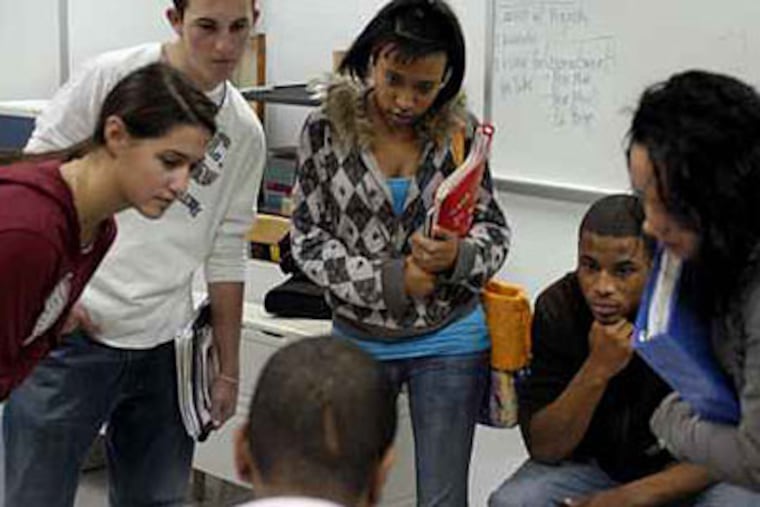High-quality education for every child is achievable
Barack Obama will be well-positioned to guide efforts of dedicated educators.

Mike Wang
directs Teach For America
in Greater Philadelphia/Camden
President-elect Barack Obama has assembled half of his cabinet in record time. I am impressed with his decisive appointments to head the State, Justice, Treasury and Defense Departments.
But I hope he will pay as much attention to another policy area that's also crucial to our economic and national security: high-quality education for every child.
We simply cannot compete effectively in the world market when only 10 percent of the children in our low-income communities can expect to graduate from college. The academic achievement gap that persists between children in low-income communities and their high-income peers has implications for our productivity, standard of living, and national security.
The good news is that we can solve this problem. As the executive director of the regional office of Teach For America, a nonprofit organization that recruits top college graduates to teach for at least two years in underserved schools, I see evidence every day that committed teachers and school leaders can raise student achievement in low-income communities.
More than 300 Teach For America teachers are working relentlessly to change educational outcomes in Philadelphia and Camden schools. And they are succeeding - in neighborhoods ranging from Germantown to Kensington, Point Breeze to West Philadelphia.
Their positive impact, along with my own experience as a Teach For America teacher in Louisiana, makes me optimistic about the future. I believe the president-elect can change the prevailing perceptions about what's possible in our public schools with a few key strategies.
First, build on the energy of young people as a force for change.
Here in Philadelphia, I have seen the impact of Teach For America teachers and alumni - most still in their 20s and 30s - in the classroom and beyond. Teach For America alumnus Marc Mannella, for example, is the founding principal of KIPP Philadelphia Charter School, one of the city's highest-performing charter schools serving low-income, minority students.
The president-elect rode to victory on a wave of optimism and activism, powered by a vibrant, young segment of our electorate. It will take committed young leaders like Mannella in every professional sector to end educational inequity, and Obama is uniquely positioned to galvanize those efforts.
Second, invest in alternative avenues of recruiting and training teachers.
To fulfill his campaign promise to recruit an "army of new teachers," the president-elect will need to expand the number of pathways into the teaching profession.
Programs such as the Philadelphia Teaching Fellows and Teach For America are proving that dedicated teachers with subject-matter expertise can help students in low-income communities succeed.
According to a recent Urban Institute study at the high-school level, Teach For America teachers are, on average, more effective than other teachers, including those who are fully certified in their subject areas.
What's more, alternative pathways can provide excellent teachers for the long term. A recent Harvard University study found that 61 percent of Teach For America teachers stay in teaching beyond their two-year commitment. That retention rate slightly exceeds the overall proportion of new teachers who remain in underserved schools for more than two years.
Finally, appoint a secretary of education who believes deeply that we can - and must - close the achievement gap.
Like Obama's other cabinet appointments, the education secretary must be a bold leader. More important, the appointee must understand that educational inequity is a solvable problem. And he or she should have the know-how to put this understanding into action.
We have ample evidence that all children can learn at the highest levels when they are given the right educational opportunities. I hope the president-elect will seize this opportunity and make education a priority for his administration.
The vitality of our economy, the health of our democracy, and the future of our children depend on it.